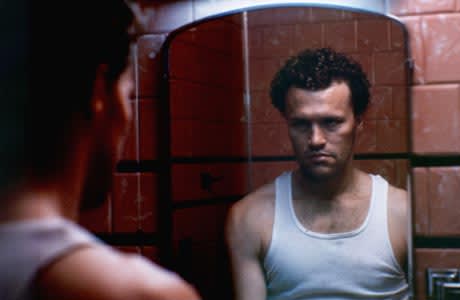In 1985, a small independent film made by an unknown director was so controversial that it couldn't be publicly screened until five years later. Henry is the portrait of real-life serial killer Henry Lee Lucas (played terrifyingly by the amazing Michael Rooker), however, this film is only loosely based on his well-documented and demented life. Following his murderous rampage with buddy (and real-life lover) Otis, dragging Otis's younger, naïve sister (but in real life his nine-year-old cousin) Becky along, the film unleashes a web of cathartically murderous hatred that is the result of Henry's tortured childhood. With some of the most sinister cinematic music ever used opening up a crawling montage of Henry's victims, the viewer quickly gets a sense of how sadistic the killer was and just how real this film will get. Psychologically, this is one of the scariest films ever made. Rooker's performance is so real and genuine that you wonder how he made it out of Lucas's mentality alive once filming ended. Everything you've heard about this film is true, even though aspects of it are not. The bonus features for this film are abundant, comprehensive and fascinating, leaving no stone unturned. The commentary is well done, opting to use a moderator to interview McNaughton in Q&A style that ensures full explanations for every detail. An interesting tidbit the director raises is how they broke the rules in never inviting the cops to show up in the film, and thus change the focus and narrative. "Portrait: The Making of Henry" documents all of the early steps and challenges that arose. McNaughton reveals the objective was to shoot a horror flick that showed a week in the life of a sociopath, while Rooker states how in order to play the role he had to leave the character at work. The documentary on Lucas is an eyebrow-raising and frightening account of the killer's true story that includes interviews with the man himself. Only the deleted scenes are less than outstanding, providing some in-depth but insubstantial extended scenes. Plus: original storyboards. (Paradox)
Henry: Portrait of a Serial Killer
John McNaughton

BY Cam LindsayPublished Nov 1, 2005



